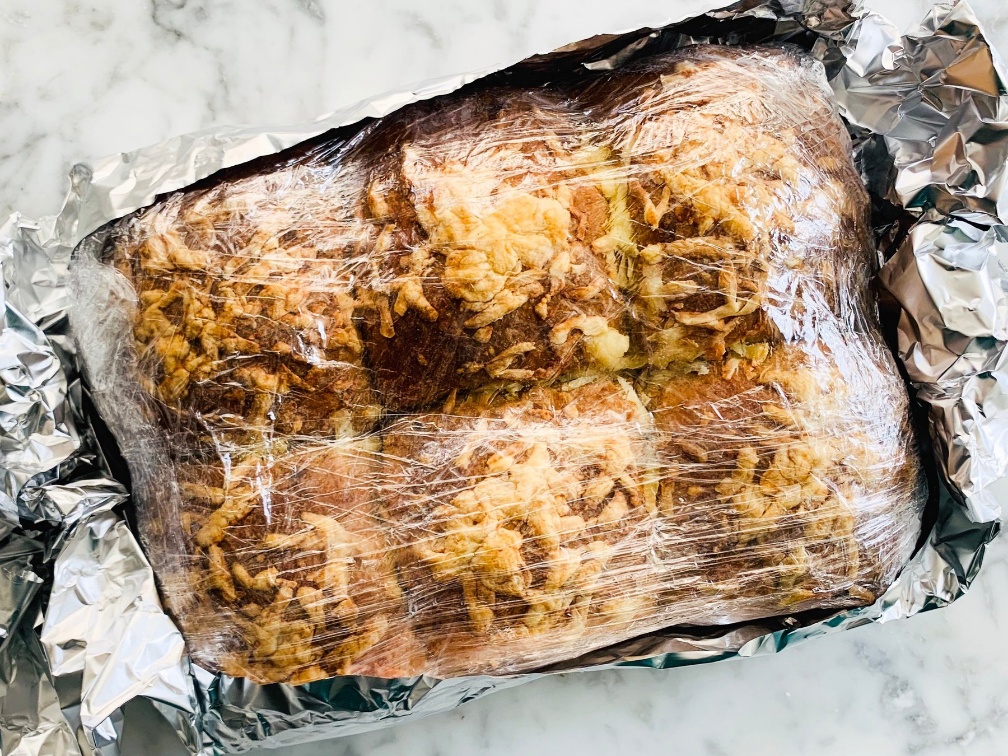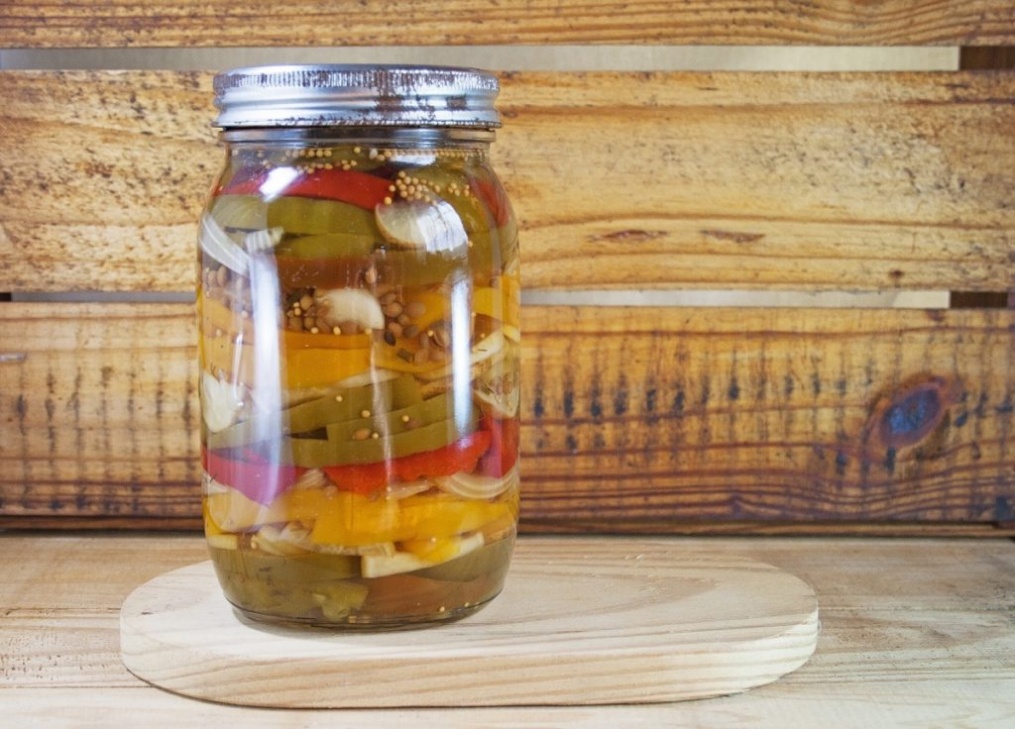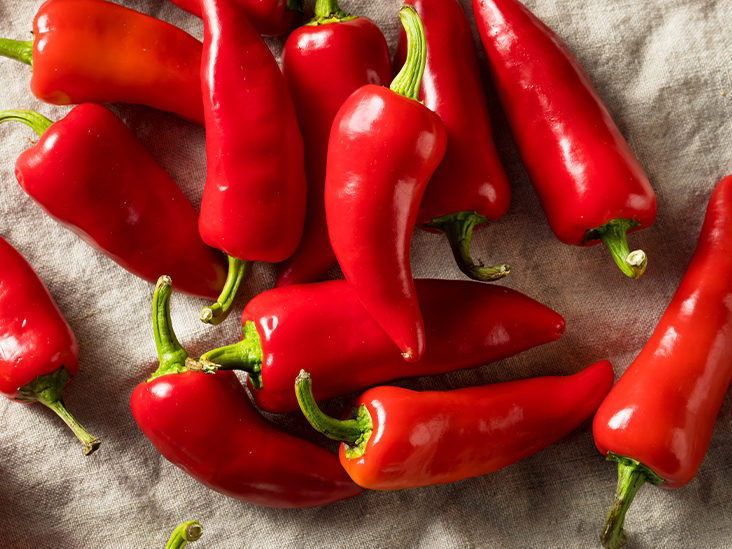
Sometimes, we have an unlimited stock of food at home and we can’t use it all at once. Food starts to rot after some days. Spoiled food can cause disease in humans and can cause food poisoning. All the leftover food becomes waste.
So, it is very important to know about natural food preservation. It will help you save food and prevent it from rotting.
This is not a current phenomenon; it’s known that natural food preservation science has been in existence for centuries. Salting, sweetening, or putting acids like vinegar have been people’s only resort to food preservation for many more years. Over time, however, synthetic chemicals took center stage, leaving many consumers wondering if they’re truly the best natural food preservatives or if there’s a safer, more wholesome alternative. If you’ve ever questioned whether a natural preservative can perform as well as artificial additives, you’re not alone. The truth is, we now have the best natural preservatives for food that do an excellent job of maintaining flavor and quality—often with fewer health risks. As demand for cleaner labels grows, understanding these options has become more important than ever.
How foods can be preserved? How do natural preservatives work? In this blog, you will learn everything regarding the natural preservation of food.
The Surge in Demand for Cleaner Labels
It’s not just health enthusiasts who are seeking the best natural food preservatives anymore. Mainstream shoppers also want to avoid chemicals they can’t pronounce. After all, it feels more reassuring to see “sea salt” on an ingredient list than a synthetic compound. A natural food preservative derived from wholesome sources is far more appealing—and often more transparent—than artificial alternatives.
But choosing a natural preservative isn’t just about marketing. It is possible that the best natural preservative, as revealed by studies and consumer experiences, is effective against spoilage, molding, and bacteria growth. This confirms the growing renaissance of natural methods in kitchens everywhere and such balance in safety and simplicity.
Advantages of naturally preserved food
Food preservation adds variation to the food. For example, in the absence of fresh peas during the summer season, stored or drained peas may be used. Moreover, Food preservation reduces the wastage of food.
Food preservatives can prevent the food from getting spoiled or rotten. Instead of chemicals, we can preserve our food naturally too so it will not lose its nutritional value.
Naturally preserved food ensures the availability of seasonal foods throughout the year. Foods that need to be transported to remote areas from the site of production can be very well preserved naturally. Besides, naturally preserved foods increase the availability of comfort foods (Ready-to-serve drinks, Instant mixes, etc.)
How do natural food preservatives work?
Natural preservatives restrict the growth of bacteria and molds in food. Hence, reduces the risk of contamination. They also slow down the changes in color, texture, flavor, and rancidity.


top 10 Natural Food preservatives
1. LIME JUICE


Lime juice is a promising natural ingredient you can use to preserve your food. Lime juice contains Ascorbic Acid and Citric Acid which are antibacterial and antioxidants.
Lime juice on the apples prevents them from turning red and protects their nutritional content at the same time.
Apart from using the Lime as a preservative, you can also include chilled Lime juice in your meal which is rich in Vitamin C.
2. SALT


Do you know what is the oldest way of preserving foods?
“SALT” – Yes, you heard it right.
Salt soaks up the moisture and reduces the water content from food. As a result bacteria growth becomes limited.
Salt is an ideal preservative for meats, fish, vegetables, and even desserts.
Do you know you can keep your food items fresh for months just by preserving them with salts!
But, how can salt be used as a natural preservative?
Initially, we will use a salt solution. Once the food is submerged in the solution, keep it in the fridge for several days. After some days change the brine if the food is to be kept in the liquid or dry it and cover it with cooking salt.
3. FREEZING


When it comes to the natural preservation process, freezing is quite an efficient option. The easiest way to keep baked food items fresh for days is to freeze them.
However, it is not healthy to freeze your vegetables for long because it might affect the nutritional value of those vegetables.
The most costly life-saving medicines are kept in cold chains to preserve them for a longer time.
4. DRYING


Drying is another beneficial method of preservation of herbs like curry leaves, mint leaves, fenugreek leaves, basil, ginger, and garlic.
Once you dry them properly, store the food at room temperature or in the refrigerator and use it for a really long period. However, you have to ensure that they do not come in contact with moisture.
5. GARLIC


Garlic is another helpful preservative that has the Anti-Viral trait to keep your food items fresh for a longer duration.
Just add some sliced garlic to your soup or any other food dish and see the magic.
It is proven that raw garlic can preserve meat for 4 or 5 days at room temperature. Also, garlic enhances the functions of other natural food preservatives as well.
6. HONEY


Back in history, honey was the most used natural preservative. Its high content of sugar makes it fit as a preservative.
It can absorb the moisture out of any food item and protect its freshness for a longer time. Honey is mostly useful for fruits and vegetables.
7. VINEGAR


Vinegar is arguably the most popular way of preserving foods. The Acetic Acid in vinegar kills the bacteria and makes the surroundings unfit for them to grow again.
Vinegar keeps fruits, vegetables, and eggs intact for days, even months.
Also, vinegar is an essential ingredient in the pickling process which also includes salt, water, and sugar.
8. CAYENNE PEPPER


Not everyone will believe it but Cayenne Pepper (Cayenne is a moderately hot chili pepper ) is an outstanding natural preservative for numerous food items.
Even red chili pepper has been recognized as one of the best natural preservatives in different food industries.
9. SUGAR


Sugar works as a natural preservative for many food items such as fruits, fruit juice, vegetables, etc.
It absorbs the water from food items and forms an environment that does not let bacteria live.
10. ROSEMARY OIL


The rosemary oil (Gulmehendi oil) has an essential antioxidant and antibacterial activity which protects the food items and keeps them fresh just like the day one.
Also, Rosemary oil is great for fruit juice and jam.
The Surge in Demand for Cleaner Labels
It’s not just health enthusiasts who are seeking the best natural food preservatives anymore. Mainstream shoppers also want to avoid chemicals they can’t pronounce. After all, it feels more reassuring to see “sea salt” on an ingredient list than a synthetic compound. A natural food preservative derived from wholesome sources is far more appealing—and often more transparent—than artificial alternatives.
But choosing a natural preservative isn’t just about marketing. It is possible that the best natural preservative, as revealed by studies and consumer experiences, is effective against spoilage, molding, and bacteria growth. This confirms the growing renaissance of natural methods in kitchens everywhere and such balance in safety and simplicity.
Things to Know About What Constitutes “Natural”
Before going into more details, I think it is prudent to define what we mean by “natural”. When we say natural preservative, we generally mean substances derived from sources like plants, minerals, or beneficial microorganisms. While there are many ways to classify them, the consensus is that best natural food preservatives should be minimally processed and free from synthetic chemicals.
However, not all “natural” ingredients are equally effective. A natural food preservative like vinegar can tackle certain bacteria, whereas salt excels at drawing out moisture. Pairing the right preservative with the right food is key to achieving both flavor and freshness—two things that every home cook and professional chef cherishes.
Traditional Methods That Still Work
Many age-old preservation methods remain valid today, especially when searching for the best natural preservatives for food. You might already be familiar with:
Salt Curing: Classic technique for meats and fish.
Sugar Preservation: Creating jams and jellies.
Fermentation: Harnessing bacteria to produce lactic acid.
Smoking: Adding flavor while inhibiting bacterial growth.
All of these rely on at least one natural preservative to discourage spoilage. And while they’re considered traditional, they’re anything but outdated—modern science continues to validate their effectiveness and safety.
Building Your Natural Food Preservatives List
If you’re curious about compiling a natural food preservatives list for your home or business, start with basic pantry staples. Salt, Sugar, vinegar, lemon juice, and a variety of herbs do some magic across cuisines. Having such really handy reference makes you capable of curing vegetables and marinating meats only by using nature.
Salt, Sugar, vinegar, lemon juice, and a variety of herbs are potent ingredients that work in wonderful ways across different cuisines. So, having such really handy reference makes you capable of curing vegetables and marinating meats only by using nature.
While many people can recall a few natural food preservatives examples off the top of their heads—like honey or garlic—there’s a whole world of options out there. In fact, knowing what are some natural preservatives can spark creativity in the kitchen as you discover new flavor combinations that also keep food fresher for longer.
Real-Life Natural Food Preservatives Examples
We often hear questions like, “What are some natural preservatives that I can use every day?” Here are a few common ones you might already have:
Vinegar – It is vinegar to pickle as well as impart a zing to food.
Salt – It is an awesome dry curing or brining agent for meats.
Rosemary Extract – Clearly an antioxidant.
Lemon juice – that is citrus, which acts as a natural food preservative.
These examples of natural food preservatives show how easily available these ingredients could be. Whether you’re whipping up salad dressings or homemade sauces, each choice can serve as the best preservative for food under the right conditions.
Finding the Best Preservative for Food Safety
There is no one-size-fits-all “best food preservative” when it comes to safety because every food requires a different approach. For example, a simple brine may be perfect for cucumbers that have been pickled, but not nearly so effective for fruit preserves.
All foods have different approaches in terms of how one preserves them, and even when it comes to safety, there is really no “best food preservative.” A simple brine may be just the thing for pickled cucumbers, but it is not usually effective for fruit preserves. Also, some individuals may experience sensitization or allergic reactions, so customizing your list of natural food preservatives to your individual needs becomes very important. So much fun lies in experimenting. If you are not sure, start in a small way. Trying out new forms of preservation will help you narrow down the examples of natural food preservatives that suit the tastes of your family. Once you find your go-to method, you’ll wonder why you ever leaned on synthetic additives in the first place.
Are Synthetic Preservatives Really That Bad?
In discussing what are some natural preservatives, it’s often easy to demonize all synthetic options. While not all chemicals are harmful, the growing body of research does raise questions about how certain artificial additives might affect long-term health. Additionally, there’s a clear consumer trend toward simpler ingredient labels—pushing brands to explore all natural preservatives for food and reduce reliance on artificial compounds.
Ultimately, it’s about finding what aligns with your values and health goals. Knowledge of synthetic chemical preservatives and natural food preservatives empowers the buyer to make informed choices in grocery shops and when preparing food in their kitchen.
Types of Natural Preservatives: A Bird’s-Eye View
As one goes further, it would be useful to categorize the types of natural preservatives one may encounter:
Acids (Vinegar, Citric Acid) – Reduce pH to inhibit microbial activities.
Salt & Sugar – Dehydrate bacteria, making it hard for them to survive.
Antioxidants (Vitamin C, E) – Prevent oxidative rancidity in fats.
Herbs & Spices – Provide antimicrobial and antioxidant benefits.
Each category has its own benefits, so understanding these types of natural preservatives can guide you in choosing the right one for every dish. For instance, certain foods benefit more from acidic environments, whereas others respond better to salt-based methods.
Your Go-To Natural Preservatives for Food PDF
To make all this information easier to reference, we’ve created natural preservatives for food PDFs you can keep on your phone, tablet, or laptop. This quick guide highlights crucial details, from recommended usage levels to flavor pairings—ensuring you’ll never wonder which natural preservative fits your recipe best.
Whether you’re a home cook or a small business owner, having natural preservatives for food PDF can help streamline your process. Say goodbye to guesswork and hello to consistent, flavorful results every time you reach for your chosen natural food preservative.
Making Life Simple Using Natural Food Preservatives
People again get the message in this present convenience-oriented world where nutrition is often secondary. Natural preservation methods will also make you realize and embrace the things you are eating and give you peace of mind, knowing that you are bypassing any chemicals. From quick pickles to slow-fermented sauerkraut, using natural preservatives can simplify your routine once you get the hang of it.
If you’re still on the fence, remember that many gourmet products—like artisanal cheeses or sourdough bread—are already made using natural preservatives for food. Emulating these traditions at home can lead to both culinary satisfaction and a healthier lifestyle.
Natural Preservatives: The Myths and The Reality
Most people assume that natural preservatives will automatically introduce no risk, but that is not always the case. Allergies exist, while excessive consumption of salt or Sugar may lead to health-related issues. Nevertheless, for most people, moderate use of a natural food preservative is much safer and less controversial than using synthetic alternatives.
Meanwhile, the myth that natural preservatives for food are ineffective simply isn’t true.Absolutely! Time-tested techniques confirmed by modern research show that many natural methods can help preserve food for surprisingly long periods. The key is knowing which one of the types of natural preservatives works best for which application.
Natural Food Preservatives-Up Close
Let’s take a closer look into natural food preservatives.This phrase covers the entire spectrum from salt to refined plant extracts. If you are seeking a more definite source, our downloadable PDF will serve as an excellent start, but you can also refer to reputable studies that establish the efficacy of each natural preservative.
Sometimes, people mix up the term with “organic” or “chemical-free,” but keep in mind that everything—natural or not—has a chemical structure. The difference lies in sourcing and processing. That’s why so many consumers gravitate toward all natural preservatives for food, as they’re typically derived from recognizable ingredients with minimal tinkering.
Spotlight on Optiphen: Where Does It Fit In?
You may come across optiphen when researching what are natural preservatives. Typically, optiphen is used in personal care items rather than foods, thanks to its broad-spectrum antimicrobial properties. While it’s paraben-free and formaldehyde-free, optiphen doesn’t usually appear on a natural food preservatives list—it’s more aligned with cosmetic applications.
Still, it’s good to be aware of Optiphen if you see it on product labels. If your goal is to stick to natural food preservatives, verify whether an ingredient is truly food-safe or primarily meant for skincare. Check double regulatory offerings when going outside popular kitchen staples.
All Natural Preservatives for Food: Final Thoughts
Choosing all natural preservatives for food is a journey, not a destination. As you explore what works best in your kitchen, you’ll quickly see that going natural doesn’t mean sacrificing effectiveness or flavor. In fact, some of the tastiest foods in the world—think kimchi or artisanal cheese—rely almost exclusively on natural preservatives.
If you ever find yourself wondering, “What are some natural preservatives I can use right now?”—just check your pantry. Chances are you have the best food preservative in hand for your next endeavor. If you follow these age-old methods, waste will be reduced and flavor enhanced, and your body and purse will be grateful.
Some quick natural tricks
Apart from all these natural uses of different kitchen ingredients, these quick tricks will help your foods stay fresh for a longer time.
Banana stem – If you do not want your bananas to get rotten early, wrap up their stem with fresh plastic.
Canning – For fish or meats, canning is the best way to keep them fresh, for many days.
FAQs
Is coconut a natural preservative?
Virgin Coconut oil is one of the effective natural preservatives.
Is vitamin E oil a preservative?
No, Vitamin E oil is not a preservative; but In some cases, Vitamin E oil is used. Vitamin E oil solely should not be used in any water-based product.
Can Aloe Vera preserve food?
Yes, Aloe Vera gel has antifungal and antibacterial properties, which act as a barrier to microorganisms. It also increases shelf life.


Aastha Raj is an academic writer & professional content writer. She provides SEO-optimized articles & blogs under multiple niches. Here at BleedGreen, through her knowledge and art of writing, she is motivating people to conserve and preserve nature and natural resources; for a better future.




